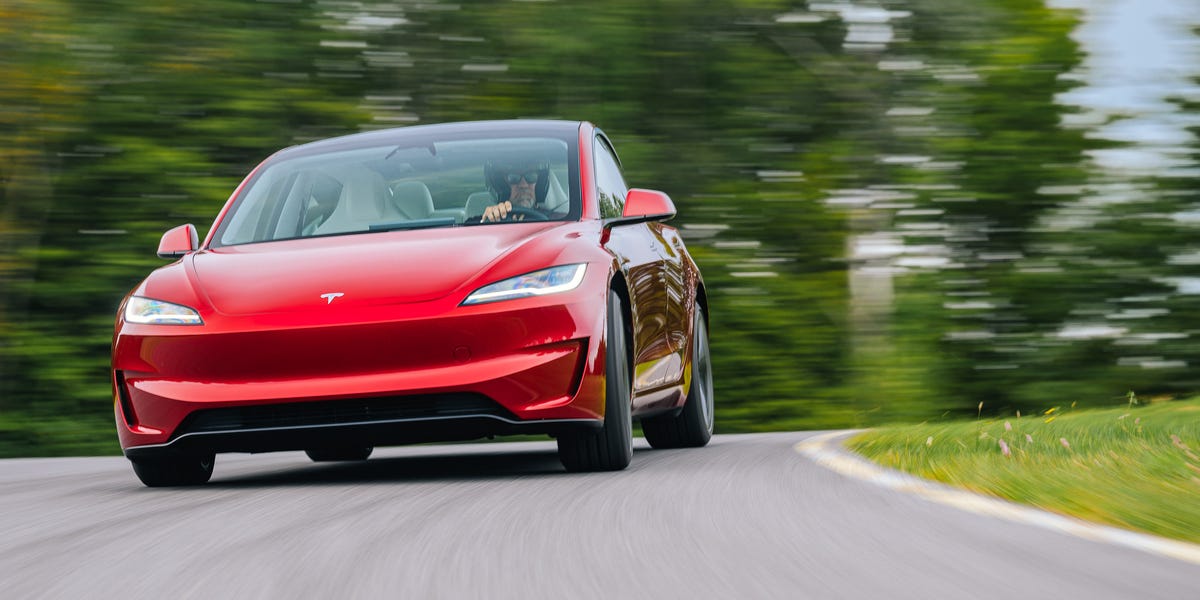Court Might Halt Tesla Sales in California for a Month

Legal Challenges and Financial Struggles Plague Tesla
Tesla, the pioneering electric vehicle (EV) manufacturer, has faced a series of challenges in recent years. While the company has made significant strides in the EV market, its ability to deliver on promises has often been questioned. The Cybertruck, for example, was delayed by two years, and the second-generation Roadster has yet to launch despite years of anticipation. Additionally, the sub-$30,000 Tesla model that CEO Elon Musk has long promised remains elusive. These delays have raised concerns about the company's reliability, especially as it navigates an increasingly competitive and regulatory-heavy automotive landscape.
One of the most pressing issues facing Tesla is its ongoing legal battle with California’s Department of Motor Vehicles (DMV). The DMV has accused Tesla of false advertising related to its Full Self-Driving and Autopilot semi-autonomous driving systems. Since 2021, regulators have been investigating these technologies, and in recent months, the DMV has issued two formal administrative charges against the company. According to reports, the DMV is now seeking a 30-day stop sale on Tesla models in California, which would be a significant blow to the company’s operations in the state.
If implemented, this stop sale could have immediate financial consequences for Tesla. The DMV is also seeking damages for owners who may have been misled by the company’s marketing. Furthermore, Tesla would be required to revise its advertising messaging in California, potentially impacting its brand image and sales.
Tesla has defended itself by emphasizing disclaimers attached to its self-driving features, which state that "active human supervision" is required. The company argues that any claims about its vehicles being fully autonomous were more aspirational than literal. Additionally, Tesla has claimed that it received "implicit" permission from the state of California to use the terms "Full Self-Driving" and "Autopilot." It has also argued that limiting its ability to advertise with those terms violates its First Amendment rights.
However, Judge Juliet Cox of the California Office of Administrative Hearings has not accepted these arguments. In June 2024, she denied Tesla’s motion to dismiss the case, stating that the DMV had provided sufficient evidence to support its claims. A separate federal class-action lawsuit has also been allowed to proceed, indicating that there is legal merit to the allegations.
The potential legal implications for Tesla are serious. While the company could challenge the DMV’s decision in California’s Supreme Court, the more immediate concern is its financial performance. The first half of 2025 has been particularly tough for Tesla, with global deliveries falling by 13.5% in the second quarter. In California, the situation is even worse, with registration figures for all-electric models dropping by 21.1% in the last quarter — marking the seventh consecutive quarterly decline in the state.
Another factor contributing to Tesla’s challenges is its reliance on regulatory credits. The Trump administration is set to change the rules governing tailpipe emissions credits, which Tesla has used to generate significant revenue by selling them to other automakers. These credits have been a key part of Tesla’s business model, allowing it to earn money while helping traditional automakers meet their Corporate Average Fuel Economy (CAFE) requirements. However, new legislation may disrupt this arrangement, further straining Tesla’s finances.
With the DMV’s hearings concluding earlier this week, Judge Cox has 30 to 60 days to issue a proposed decision. While the final say will rest with the DMV director, Tesla is preparing for potential financial and operational disruptions. The company has shown resilience in the past, using over-the-air updates and flexible pricing strategies to adapt to market changes. As it faces these challenges, the coming months will be critical for Tesla’s future in the evolving automotive industry.